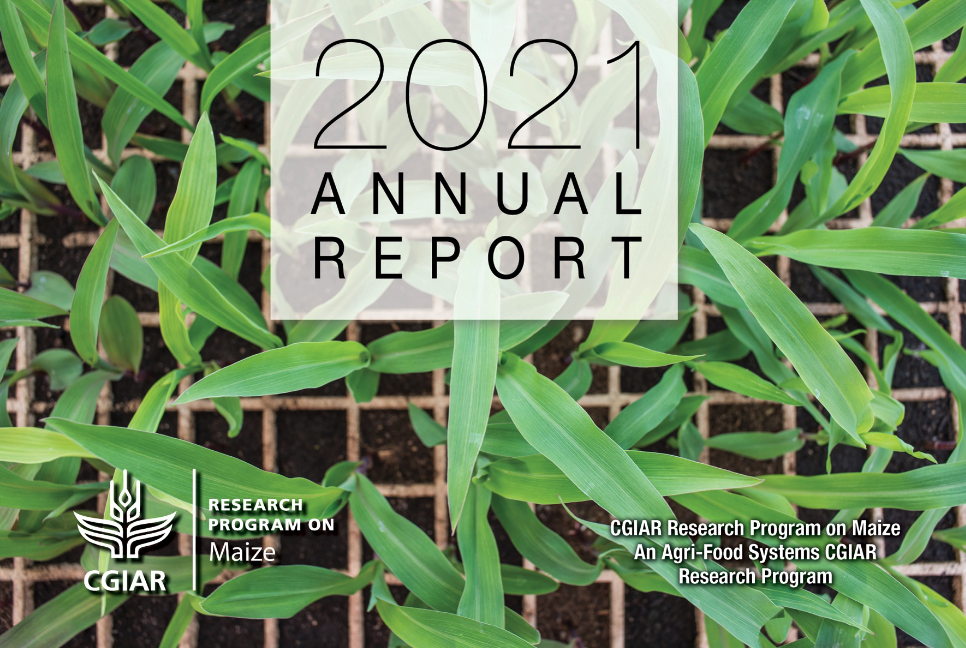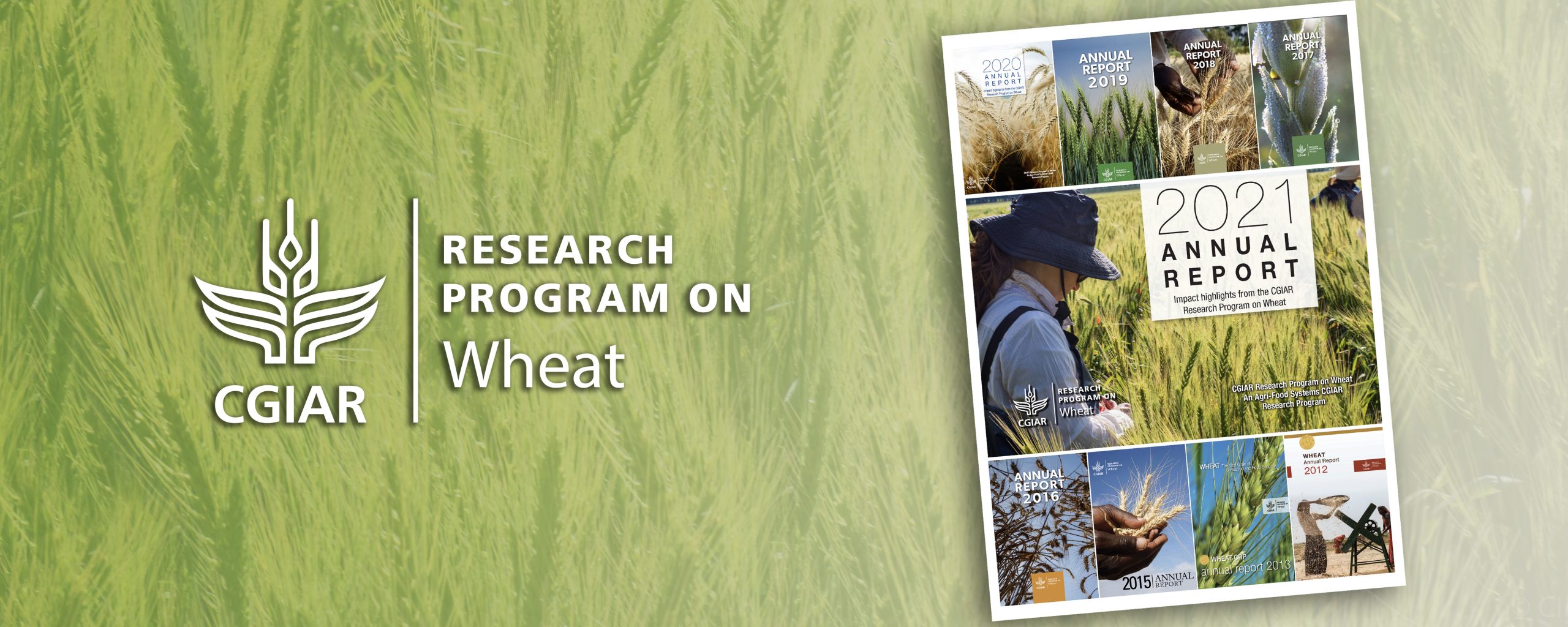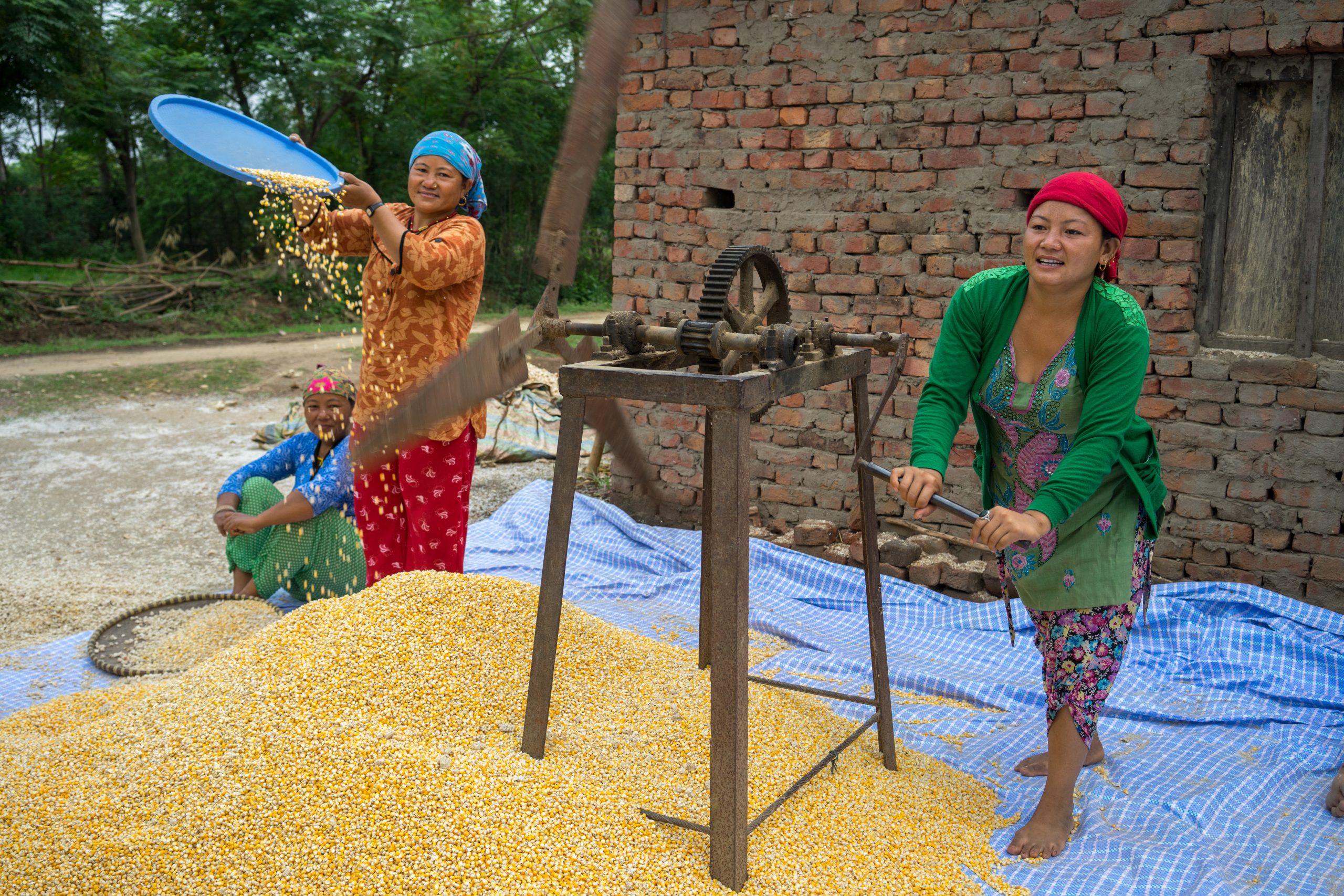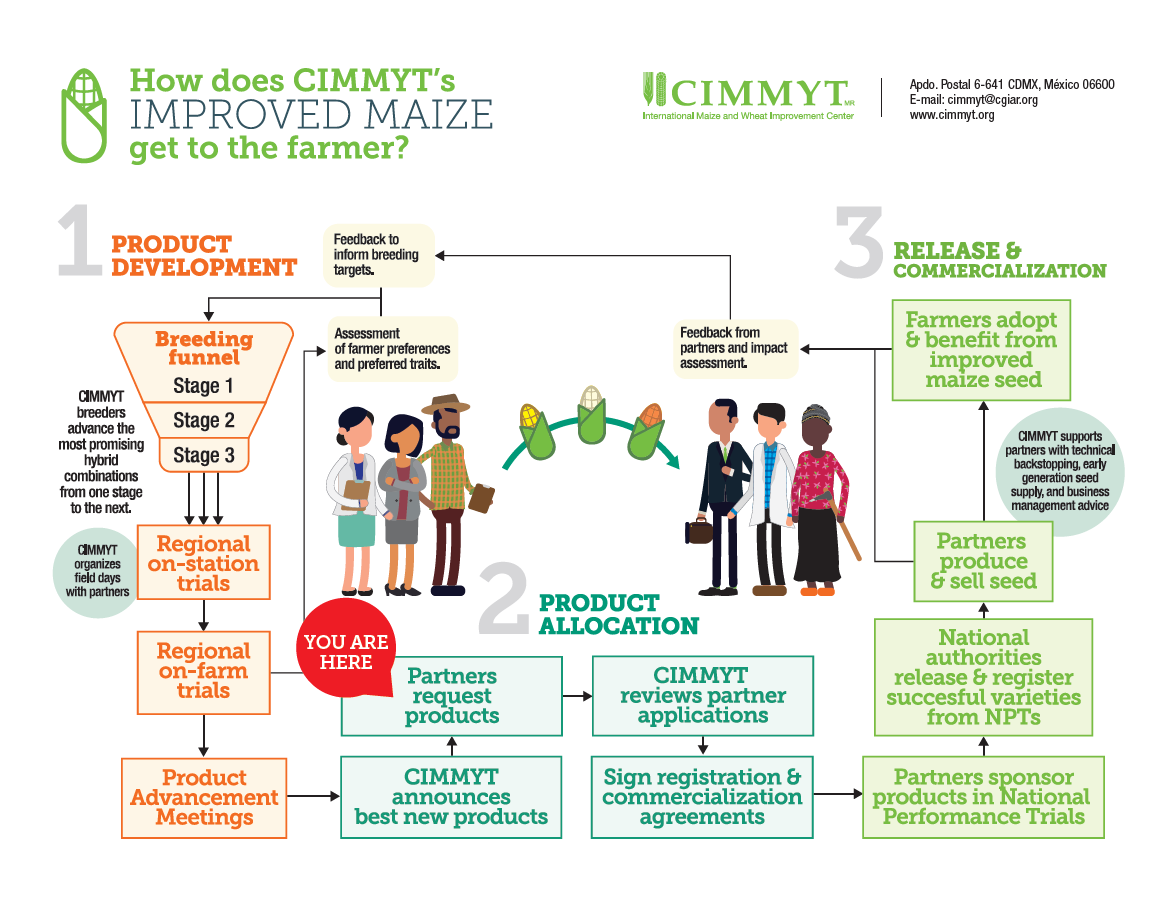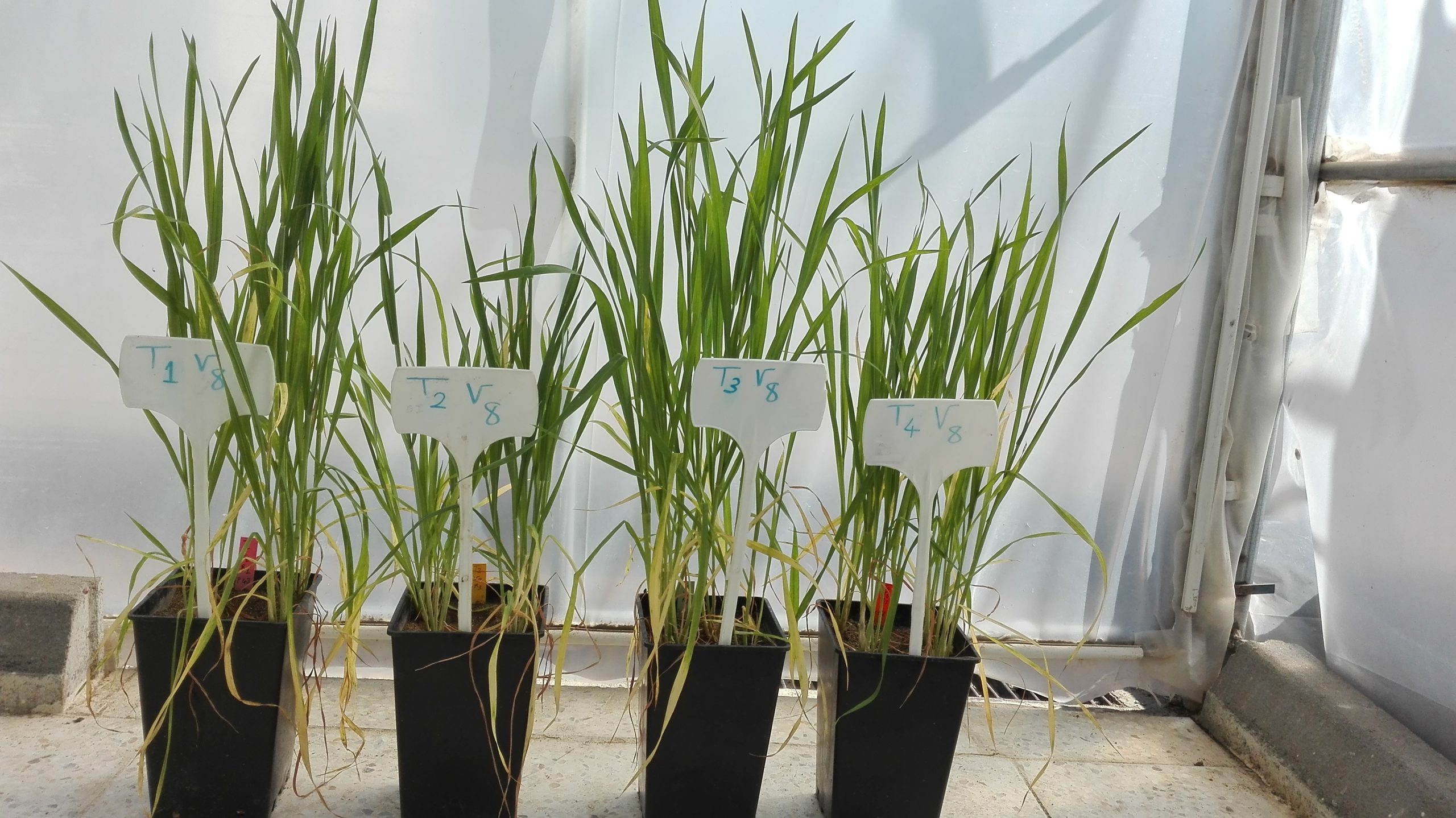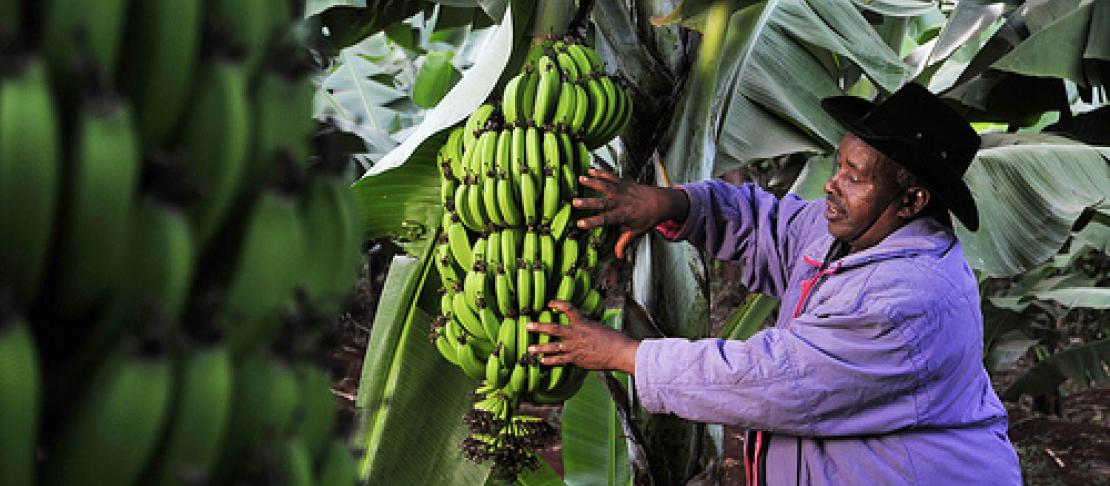CRP Maize Annual Report 2021
 Innovations
Innovations
The legacy of this international collaboration in maize research sealed in the program’s final report.
CRP Wheat Annual Report 2021
 Innovations
Innovations
The legacy of this international collaboration in wheat research sealed in the program’s final report.
Food Is Just as Vital as Oil to National Security
 Nutrition, health and food security
Nutrition, health and food security
Source: Bloomberg (7 Mar 2022)
A new Bloomberg op-ed urges nations to steer more money to organizations like CIMMYT that are advancing crucial research on how to grow more resilient wheat and maize crops in regions that are becoming steadily less arable.
CIMMYT deeply regrets the passing of leading agriculture and forestry research expert Barbara H. Wells
As Director General of the International Potato Center (CIP) and as CGIAR’s Global Director for Genetic Innovation, Wells helped improve the health and livelihoods of millions of people.
New direction in research for advancing gender-responsive maize breeding
 Capacity development
Capacity development
Research on gender and maize looks to move beyond trait preferences at seed demand more broadly.
New CIMMYT maize hybrids available from Eastern Africa Breeding Program
 Innovations
Innovations
CIMMYT is offering a new set of improved maize hybrids to partners, to scale up production for farmers in the region.
How interactions among hidden enemies and drought effects grain yield and disease severity in bread wheat
 Environmental health and biodiversity
Environmental health and biodiversity
CIMMYT scientists in Turkey investigated the effect of soil borne diseases individually and in combination with drought on morphological and physiological traits in wheat germplasm.
Meet The Indian Researcher Helping To Solve The Deadly Aflatoxin Puzzle
 Nutrition, health and food security
Nutrition, health and food security
Source: Forbes (29 Dec 2022)
Pooja Bhatnagar-Mathur, a Principal Scientist at CIMMYT, says aflatoxin, a toxin produced from soil fungus and found in groundnuts like peanuts, is a serious public health and food safety problem around the globe.
New grafting technique could combat the disease threatening Cavendish bananas
 Innovations
Innovations
Scientists find novel way to combine two species of grass-like plants including banana, rice and wheat, that allows disease resistance and other beneficial characteristics to be added to the plants.
Creating a better leaf
 Environmental health and biodiversity
Environmental health and biodiversity
Source: The New Yorker (6 Dec 2021)
A new article in the New Yorker praises the cutting-edge technology CIMMYT, CGIAR and other scientists are developing to produce a second Green Revolution that doesn’t repeat the mistakes of the first, putting the experiences and challenges of farmers at the heart of it.
Throwing money at the problem won’t solve world hunger
 Nutrition, health and food security
Nutrition, health and food security
Source: The Washington Post (22 Nov 2021)
Harvard Professor Gabriela Soto Laveaga stresses the importance of tackling hunger as more than a technical problem to be addressed through scientific advancement alone, praising CGIAR for its community-centered approach to food systems amid the climate crisis.
Workshop held at BARI
 Capacity development
Capacity development
Source: New Age (21 Nov 2021)
CIMMYT-Bangladesh country representative Timothy J. Krupnik was the guest of honor at a workshop organized by Bangladesh Agricultural Research Institute on fall armyworm management.
Pakistan, India transboundary dialogue imperative to resolve Lahore’s pollution: Amin
 Climate adaptation and mitigation
Climate adaptation and mitigation
Source: Daily Times (21 Nov 2021)
At COP26, Special Assistant to Pakistan’s Prime Minister on Climate Change said that a transboundary dialogue on mitigating air pollution was imperative to resolve Lahore’s smog.
CIMMYT scientists recognized for impact
 Capacity development
Capacity development
Researchers listed among world’s most influential scholars, based on citations.
Ending rice-wheat monopoly can ease Delhi woes
 Climate adaptation and mitigation
Climate adaptation and mitigation
Source: The Times of India (13 Nov 2021)
ML Jat speaks with The Times of India about the work of CIMMYT and its partners on diversification and carbon credits—two futuristic ways to reduce greenhouse gas emissions from agriculture in India.
